Bill France Sr. founded NASCAR 75 years ago, in Feb 1948 — here is his amazing story
Bill France Sr. was a prominent mechanic and service station owner in Daytona Beach in the 1930s and 1940s; he raced cars on the city's wide sandy beaches. He founded NASCAR, the world's most popular stock-car racing circuit, on Feb. 21, 1948.
It's traditional for NASCAR drivers to celebrate a win with a smoky tire burnout in front of the fans, but Zane Smith took it to the next level in Texas on Saturday.
After winning the XPEL 225 at the Circuit of the Americas (COTA), the defending Truck Series champion performed a couple of donuts on the Austin, Texas, track's front straight.
He then nosed his Front Row Motorsports Ford up against the pit wall and proceeded to spin the tires as the truck stood in place and sent a huge cloud billowing from its rear tires.
But when he got out, the smoke kept coming and the burnout literally became one.
MOST VEHICLES CAN'T PASS MUSTER IN NEW TOUGHER CRASH TESTS
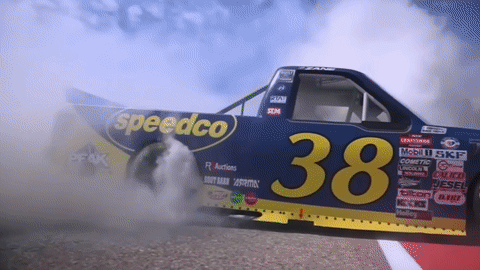
Zane Smith's truck caught fire after a victory burnout. (NASCAR on Fox)
Fire engulfed the rear of the truck near the tires on both sides and started spreading, causing damage to the vehicle before safety crews were able to extinguish it.
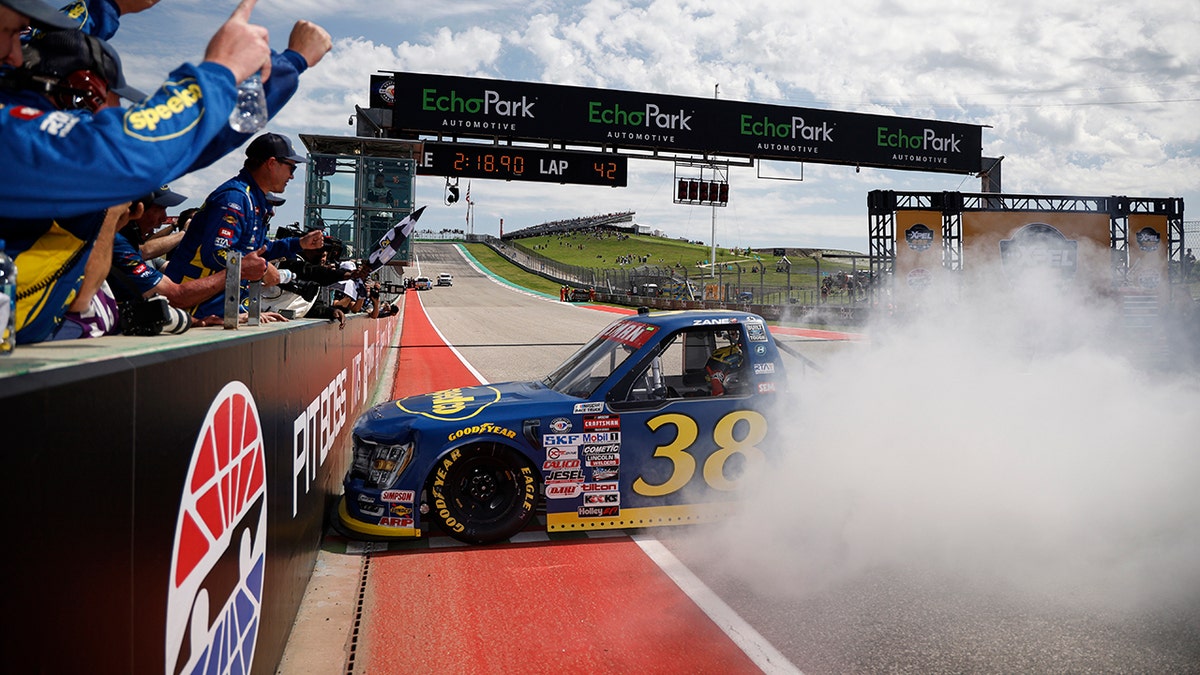
Smith held his truck in place against the pit wall. (Chris Graythen/Getty Images)
"It didn't catch on fire when I was inside the truck. I had gotten out and there was white smoke and then, all of a sudden, I'm just covered in black smoke and I could hardly breathe," Smith said in a post-race press conference.

The fire started at the rear wheels. (Chris Graythen/Getty Images)
It was an unusual occurrence, but there were unusual circumstances that caused it. When NASCAR vehicles compete on road courses like COTA they get a few special parts that aren't used on most ovals.
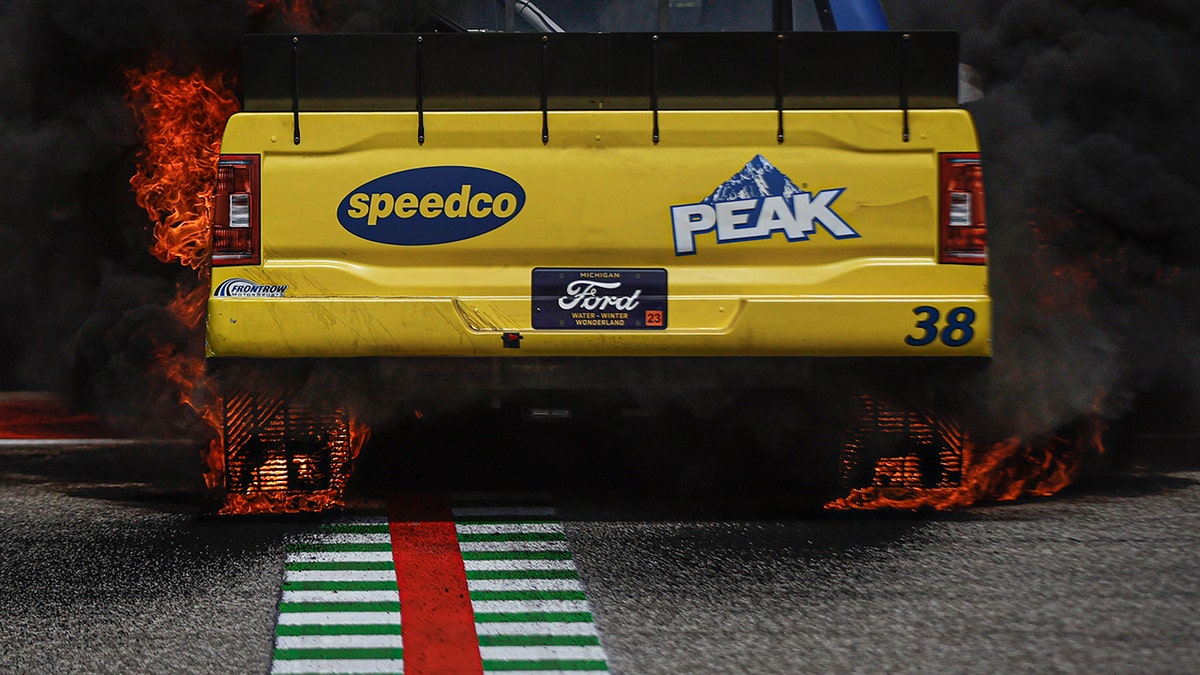
Rubber dust is shaved off the tires during a burnout. (Sean Gardner/Getty Images)
Along with a single windshield wiper and rain lights, in case there is precipitation, they're also equipped with what look like mesh mud flaps. They're not meant for dirt, but to prevent big rooster tails of water kicking up from the cars during heavy rain, which can limit visibility for the drivers following them. Unfortunately, smoke isn't the only thing that comes off a tire during a burnout.
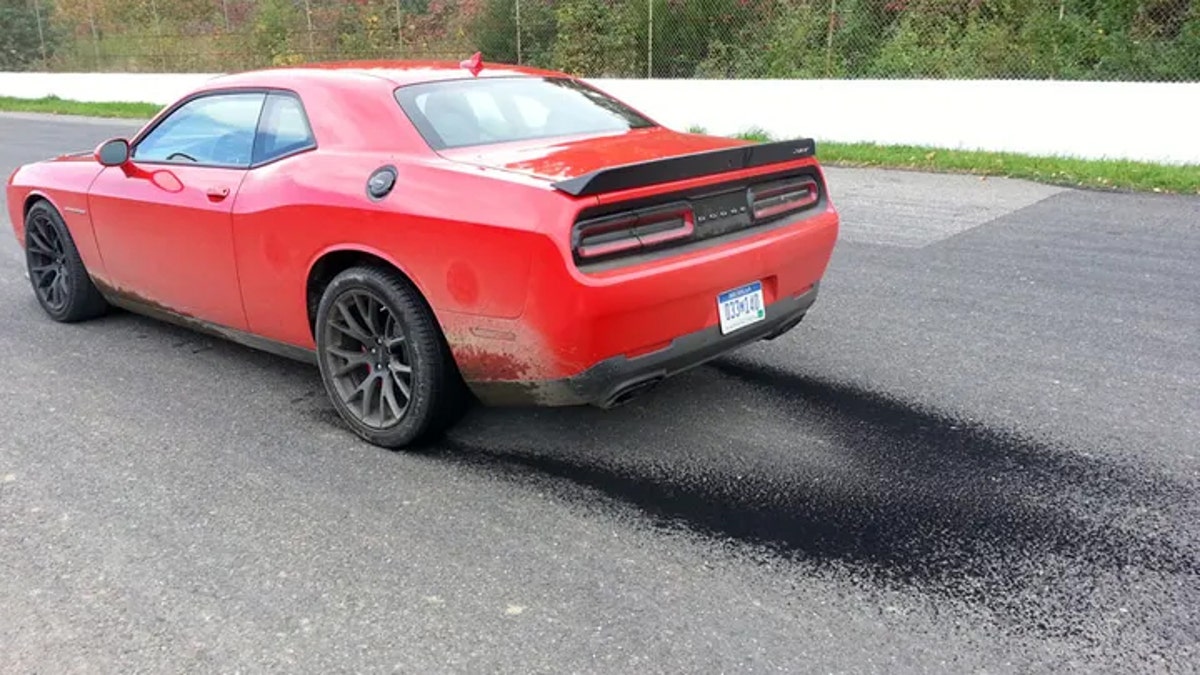
Street cars like the Dodge Challenger SRT Hellcat are also capable of shedding tire rubber during a burnout. (Fox News Digital)
The rubber gets shaved off into a dust that is sprayed behind the wheel and usually left in a pile behind the vehicle, but in this instance it appears that some of it was collected by the flaps.
While tire rubber is engineered to withstand the heat generated during driving, 400 degrees can be enough to ignite it. A Front Row Motorsports spokesperson said the team still isn't exactly sure what caused it to flame up, but thinks the burnout was just so severe that it go so hot that when it bunched up on the flaps it self-ignited.
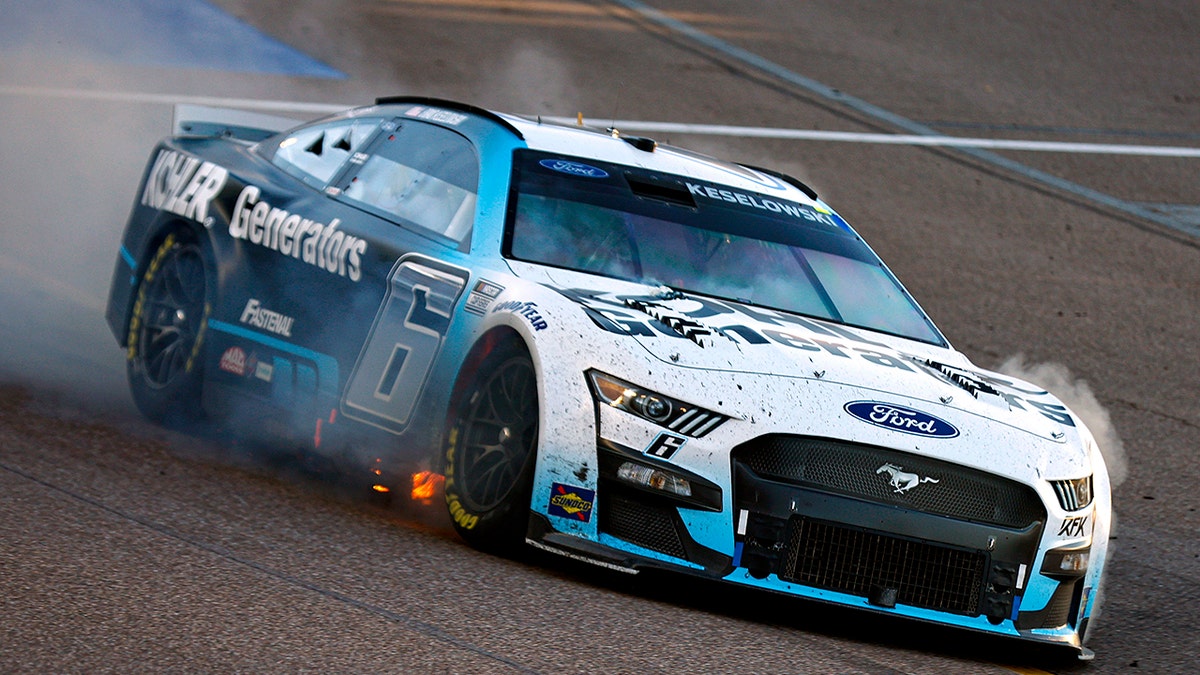
Brad Keselowski's car caught fire during the 2022 championship race at Phoenix Raceway. (Sean Gardner/Getty Images)
There are many high temperatures heat sources on a NASCAR truck, however, including the brakes, which can reach 1,800 degrees during a race, according to brake manufacturer, Brembo. Several of the new seventh-generation NASCAR Cup Series cars also caught fire last season due to rubber building up during the normal course of the races in the rocker boxes below the doors, which are heated up by the exhaust pipe routing, which led to the vehicles being updated to address the issue.
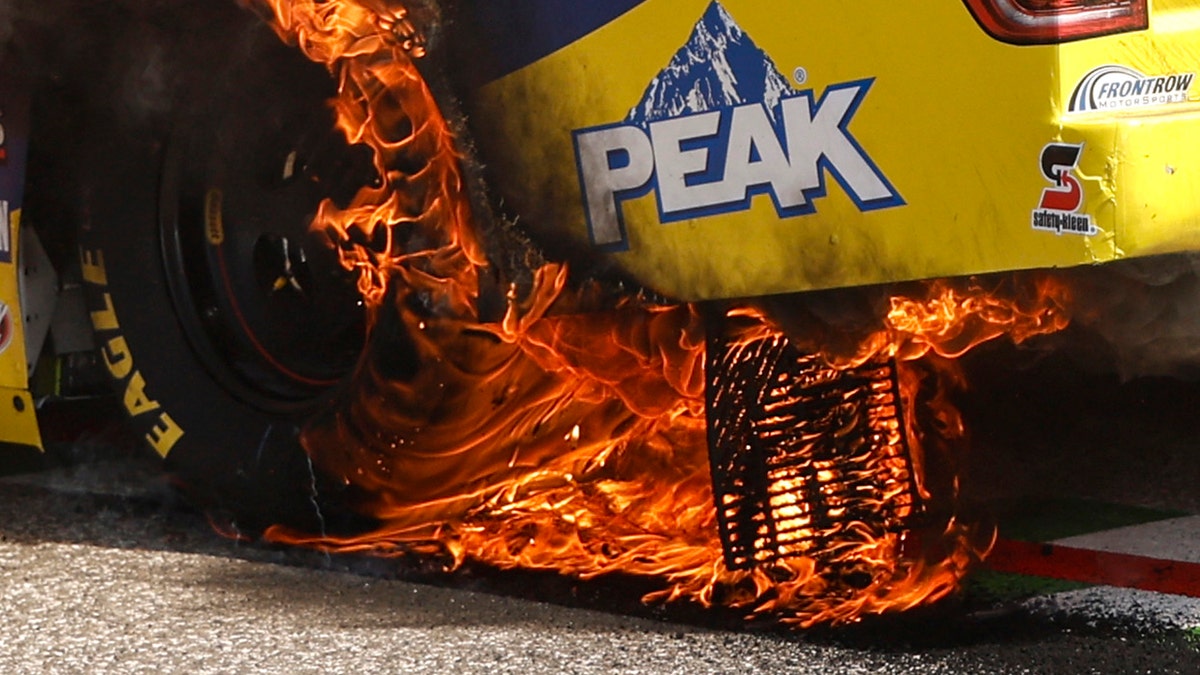
It's likely that the rubber dust was collected by the rain flaps. (Chris Graythen/Getty Images)
"I didn't think about this, obviously," Smith said.
He won't need to again for a while, but the Cup Series drivers will have to keep it in mind at Richmond Raceway in Virginia this Sunday.
CLICK HERE TO SIGN UP FOR THE FOX NEWS AUTOS NEWSLETTER
For the first season ever, NASCAR will use the rain package at its short oval tracks and allow the races to continue in light precipitation, so they'll have all the same equipment at Richmond that the road course cars use, including the flaps, according to Fox Sports NASCAR reporter Bob Pockrass.
CLICK HERE TO GET THE FOX NEWS APP
However, they will take on a more traditional role the following week at Bristol Motor Speedway.
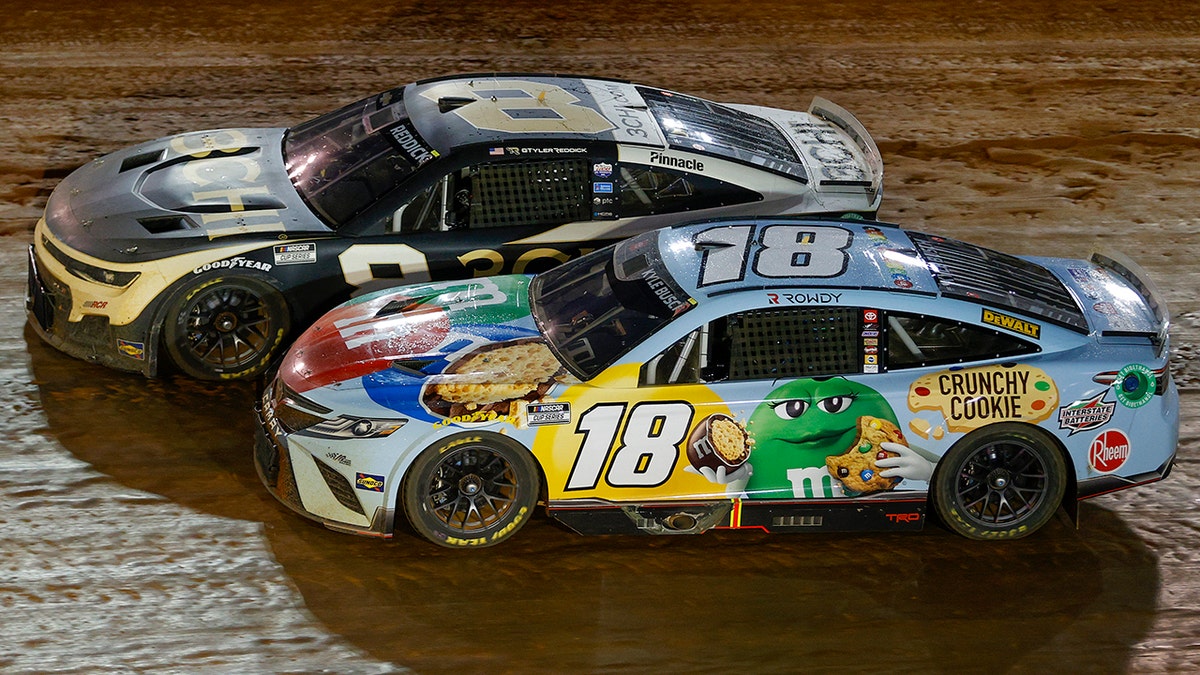
Kyle Busch (18) won the 2022 Bristol dirt race in a car equipped with flaps. (Chris Graythen/Getty Images)
For the third year in a row, the track has been converted to a moist dirt surface for the spring race and the flaps will be used to keep the cars from kicking up too much of the muck.




















